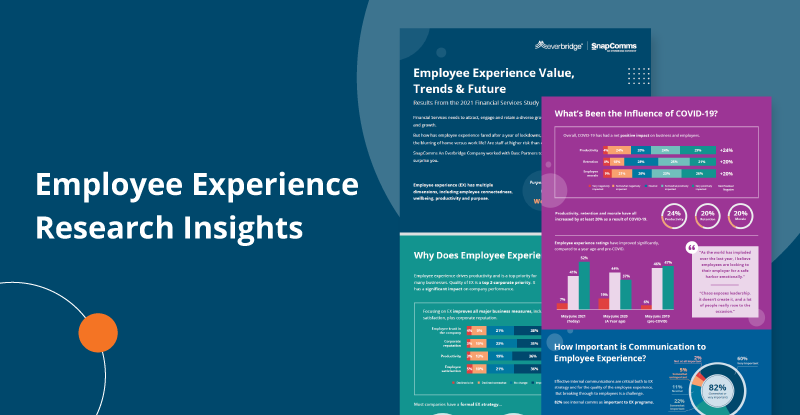
Setting objectives for your employee experience (EX) programs can deliver a 1.6x higher impact on your company's performance.
That’s one of the findings from new employee experience research commissioned by SnapComms in June 2021. But while most organizations understand the critical role employees play in business performance, fewer focus on and track employee experience.
This presents a challenge for Human Resources Managers, who are responsible for building a satisfied, productive workplace. A number of key questions are left unanswered.
What’s the true impact of employee experience on the organization? How is EX managed? How did COVID-19 affect digital employee experience? And what’s the future for EX long term?
We partnered with Pennsylvania-based agency Basc Partners to research more than 200 professionals in the US Financial Services sector.
See the top 5 employee experience insights below, and get the full story in our free infographic at the end.
1. Focusing on EX improves employee trust by 53%
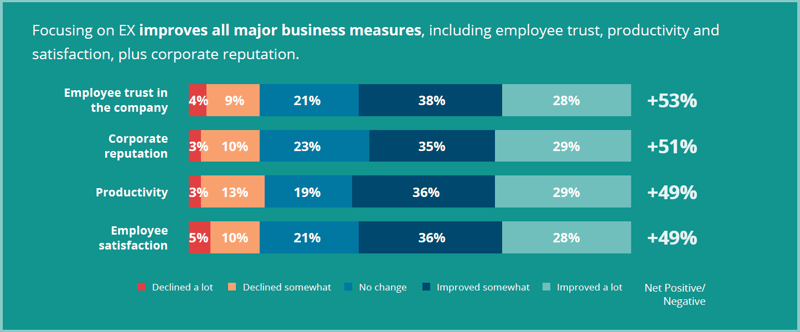
All major business measures were improved when companies focused on EX. Employee satisfaction, productivity, corporate reputation and employee trust in the company all lifted by at least 49%.
Employee engagement research seeks to define the value EX provides. Our survey reflects that EX drives productivity, and that quality of EX is a top 3 corporate priority.
That’s why 70% of businesses believe positive EX improves company performance. That’s music to the ears of HR Managers!
2. COVID-19 has had a positive effect of at least 20%
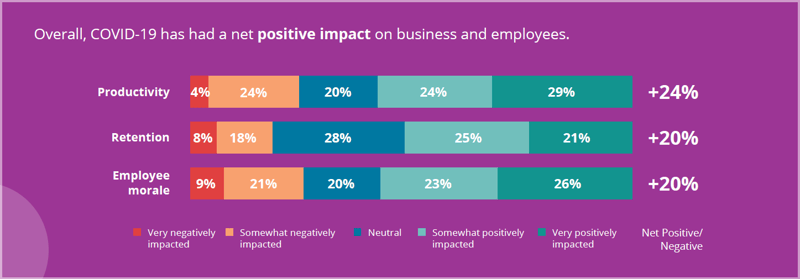
It turns out the pandemic isn’t all bad news. Overall, COVID-19 has had a net positive impact on business and employees. Productivity, retention and morale have all increased by at least 20%.
These improvements come as a result of positive changes introduced by employers. The quality of leadership communications, flexibility over working conditions, and empathy from managers and peers have all increased.
Indeed, EX ratings have improved significantly compared to a year ago and pre-COVID. So perhaps it’s true that every pandemic cloud does have an EX silver lining, after all.
3. Setting EX objectives achieves 1.6x higher returns

Employers that set objectives for EX programs see a 1.6x higher impact on company performance compared with those that don't. However, only 54% believe setting objectives is important.
While 86% of companies have a formal EX strategy, very few of them actually commit this to paper. Maybe that’s because one in five find it difficult to find time to adequately manage their EX.
More sophisticated companies share the results and solicit employee feedback. This provides one avenue for employers to improve employee experience.
4. Poor communications has the largest negative impact on EX
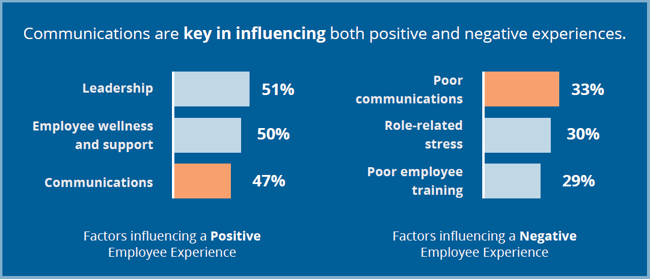
Effective internal communications are critical to EX strategy and for the quality of the employee experience. Our survey showed that 82% see internal comms as important to EX programs.
In fact, communications are a key influence on both positive and negative EX. It’s the third most influential factor for positive EX. But poor communications are the top negative influence – higher than role-related stress, poor training or bad manager relationships.
All the more reason to ensure your HR communications are well-designed, targeted and optimized for success!
5. Connectedness is key for the future of EX
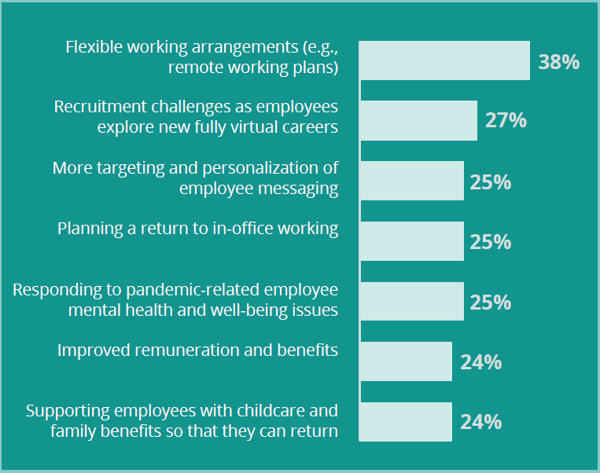
Flexible working, career growth and personalization are the biggest trends expected in employee experience after COVID. In this ‘semi-virtual work world’, the challenge for HR Managers will be effectively connecting staff without the unifying presence of COVID.
While employers previously focused more on employees’ functional needs, COVID disruption saw focus pivoting more onto emotional needs. Balancing both will be necessary in times of continual remote work and digital transformation.
More than ever, leaders need to win over both the hearts and minds of their employees.
Employee experience is one of the top 5 priorities for HR leaders in 2021, according to a Gartner report. It’s official recognition of the crucial role employees play in businesses navigating the ongoing changes in working environments.
Get the full story on EX today, what’s coming in the future and how you can maximize the opportunities, by downloading our free infographic.
Or to discuss how to boost your EX through better employee communications, contact us to speak with one of our communication specialists.


